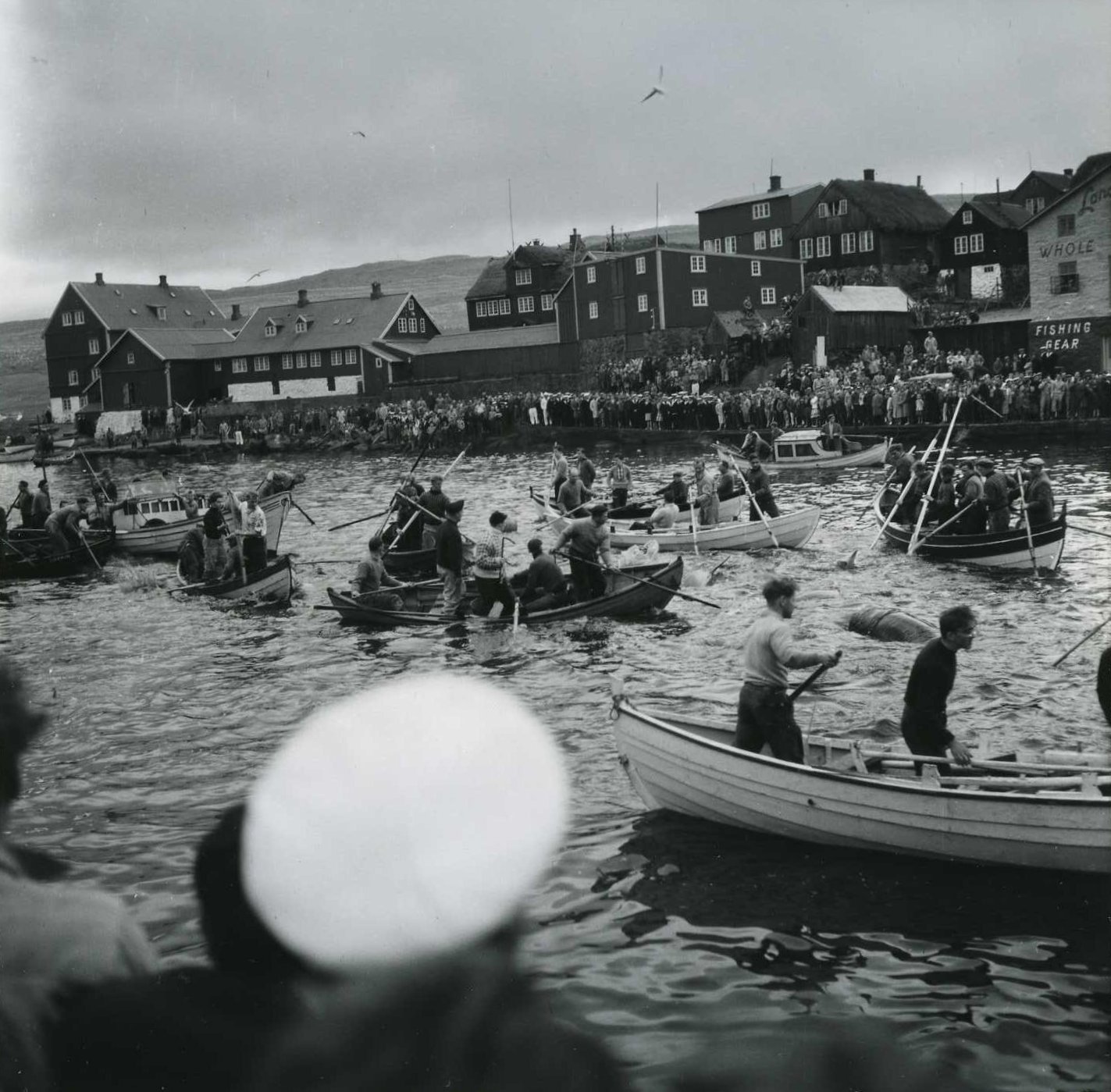Whaling by Nordic countries
Iceland, Norway and the Faroe Islands are among the few countries in the world that still permit limited whaling.

Iceland and Norway are among the few countries in the world that permit limited whaling. Before the mid-nineteenth century, whales were largely killed with handheld harpoons from small boats, and Dutch, British and American whalers were in the majority. The hunt was dangerous but economically rewarding; apart from the meat, whale oil was used in cosmetics, lamps, soap, margarine etc., and the bones were used for clothing and fertiliser. The modern harpoon, armed with an explosive tip, was invented by the Norwegian Svend Foyn in 1863, propelling Norway to the international forefront of whaling. As large steamships replaced sailing vessels in subsequent decades, whaling was industrialised, and permanent Norwegian whaling stations were built in South Georgia in the Antarctic after the whale populations in the North Atlantic had been depleted almost to the point of extinction. Several of the largest species of whales, including the blue whale, the largest animal that has ever lived, were severely threatened with extinction when whaling in the Antarctic region was finally abandoned in 1968.
An international moratorium on all whaling was broken by Norway in 1993, when the country resumed hunting for minke whales in the North Atlantic. The stocks were estimated at nearly 87,000 animals then, and the quota was small, yet many governments and environmental organisations protested vigorously against the Norwegian decision. In Iceland, small-scale whaling continued to 1985, and was resumed in 2003 amidst a flurry of international protests. In the Faroe Islands, pilot whales continue to be hunted for their meat and blubber, which is distributed, after the grin∂adrap (whale killing), to members of the local community in a cooperative spirit.
Defenders of whaling argue that stocks of certain species of small whales are very substantial and need to be culled for ecological reasons. Their adversaries argue that estimates are uncertain, that Norway and other countries (like Japan and the USSR) nearly exterminated several species in the recent past, and finally that killing whales with harpoons involves an inordinate amount of suffering on the part of the animal.
Further reading:
- Arne Kalland, Unveiling the Whale: Discourses on Whale and Whaling (Oxford: Berghahn, 2011).